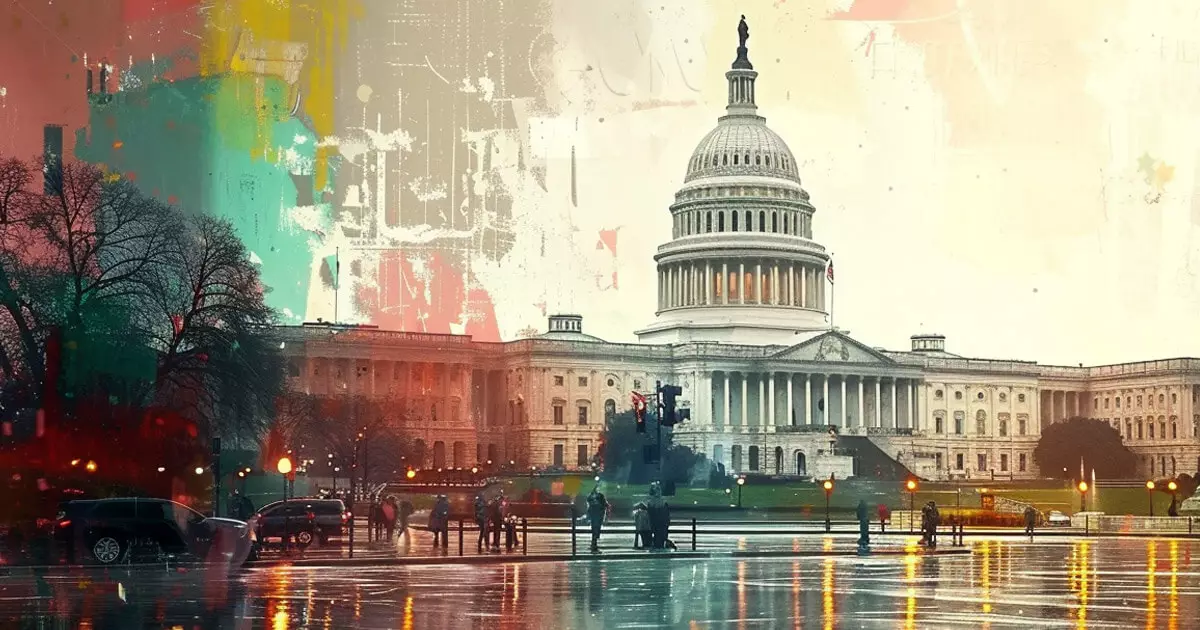The ongoing debate surrounding the banking access of cryptocurrency businesses has reached a decisive moment, as Rep. French Hill has announced intentions to deepen inquiry into the regulatory atmosphere that allegedly seeks to sever these firms from crucial financial services. This mission mirrors concerns voiced by notable industry stakeholders, underscoring the mounting unease about the relationship between federal authorities and banking institutions concerning their service to crypto enterprises. The recent testimony at a House Financial Services Committee hearing highlights the crucial intersection between regulation, innovation, and financial access for businesses operating in the rapidly evolving landscape of digital currencies.
During the hearing on December 3, industry leaders brought forth compelling narratives about their struggles to maintain banking relationships. Hill, who is vying for a key leadership position in the House Financial Services Committee, emphasized that legitimate businesses ought to have unfettered access to financial services, stating, “This committee will thoroughly investigate these issues into the next Congress.” His remarks resonate in an environment rife with skepticism about the health of the regulatory framework governing cryptocurrencies.
The backdrop of this discussion has been further fueled by recent comments from Marc Andreessen, co-founder of venture capital firm a16z, who highlighted concerns during his appearance on the Joe Rogan podcast. Andreessen alleged that federal authorities have been pressuring banks to cut ties with companies engaged in crypto and other sectors, a sentiment that evokes memories of “Operation Choke Point.” This initiative originally initiated by the Justice Department in 2013, targeted high-risk industries, restricting their access to financial services. The term “Operation Choke Point 2.0” has surfaced to describe a perceived new wave of regulatory oversight aimed at similarly high-risk sectors.
Executives from firms such as the Stellar Development Foundation and Anchorage Digital articulated their challenges at the hearing, with Stellar CEO Denelle Dixon recounting a troubling experience of attempting to establish banking relationships. She remarked on how her company had reached out to ten different banks only to face rejection without clear justification. Such accounts of arbitrary denial raise questions about the fairness and transparency of banking practices, particularly when it comes to emerging technology sectors like blockchain and cryptocurrency.
The discussion around banking restrictions is occurring concurrently with noteworthy shifts in the leadership of the House Financial Services Committee. With current Chair Patrick McHenry announcing his retirement, the race to fill this pivotal role includes Hill and other pro-crypto Republicans. This transition could prove instrumental in shaping the future regulatory landscape for cryptocurrency, especially as newly elected President Donald Trump has pledged to counter regulatory efforts reminiscent of Operation Choke Point, suggesting a possible tide shift in congressional attitudes towards crypto regulation.
Even as the Federal Deposit Insurance Corporation (FDIC) reassured that banking institutions are under no prohibition from servicing specific industries, doubts linger among lawmakers about the equitable enforcement of such policies. This inconsistency underscores the urgent need for harmonized regulations that do not disproportionately impact innovative sectors grappling with their integration into traditional finance.
In addition to the discourse surrounding banking access, the hearing illuminated critical ongoing discussions regarding the regulation of stablecoins—a significant subset of the cryptocurrency market. Lawmakers are divided over how much regulatory oversight should be delegated to state-level authorities versus federal standards. Hill shared his optimism about navigating toward beneficial legislation amidst time pressures, declaring that “significant progress” had been made and emphasizing the potential for building consensus among lawmakers.
Rep. Maxine Waters also shared a hopeful outlook on developing a bipartisan stablecoin framework with former Chair McHenry. Acknowledging the challenges presented by a packed legislative timetable, Waters’ remarks exemplify the ongoing commitment to finding common ground even in a politically charged context. Such bipartisan efforts will be crucial in establishing a regulatory environment that facilitates innovation while ensuring consumer protection in the volatile crypto landscape.
As the cryptocurrency industry continues to innovate, the evolving regulatory narrative will play a key role in determining its future. The urgency expressed by Congress members highlights the need for a balanced approach that supports the burgeoning potential of digital assets while addressing legitimate regulatory concerns. The coming year will be pivotal in shaping the dynamics between cryptocurrency businesses and their banking counterparts, ultimately influencing the sector’s robustness in the global financial ecosystem.

